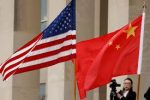
The latest development in rapidly deteriorating ties between US and China is the tit-for-tat consular closures, marking yet another round of rising tensions between the world’s top two economies. A statement released by the Chinese Foreign Ministry said the US Embassy had been informed of the Chinese government’s decision to revoke consent for establishment and operation of the US Consulate General in Chengdu. This comes after the US ordered China to close its consulate in Houston earlier this week on grounds of China “stealing intellectual property.”
US President Donald Trump has said he may order the closure of more Chinese consulates in the country. In response, China had threatened to retaliate if the US did not withdraw its decision. In a major speech on the Trump administration’s China policy, US Secretary of State Mike Pompeo hardened the US stance towards China accusing it of “authoritarianism at home” and “more aggressive in its hostility to freedom everywhere else”, a few hours after which China announced its decision.
Tensions were already high between the two countries which have been aggravated by the ongoing pandemic. Escalatory moves in the recent past include revised travel rules for diplomats, expulsion of foreign correspondents and visa restrictions by both sides, indicating a serious deterioration in ties. Four Chinese nationals have also been charged with visa fraud in US for allegedly lying about their membership of China’s armed forces.
The US has also imposed sanctions on Chinese politicians and accused them of grave human rights violation against Muslim’s in Xinjiang. Beijing has denied these allegations and instead accused the US of “gross interference” in its domestic affairs. Now, with the shutting down of diplomatic missions, the message is clear- the two countries are moving towards a deeper divide reminiscent of the Cold War days.
The Chinese Foreign Affairs Ministry termed the move as “legitimate and necessary response” to the “unjustified act” by the United States. It unilaterally blamed the US for the ‘current situation’ in bilateral relations, which have been “gravely harmed” allegedly by the US breaching terms of the China-US consular convention. The US consulate in Chengdu was established in 1985, covering consular affairs in several provinces and regions, including the contentious Tibet region. Chengdu has also emerged as a vital centre for China’s foray into Central Asia, freight trains have carrier consumer electronics and other goods across Asia and Eastern Europe into Western Europe for seven years now. Neither the State Department nor the United States Embassy in Beijing have responded yet.
Although the short-term effect of the closing of consular services may be limited, given the ongoing travel restrictions have halted the visas they normally process, the graver implications of closing down of diplomatic channels of communication will become evident in days to come. With no signs of cooperative resolutions of disputes, China and the US are headed towards a prolonged diplomatic deadlock.






